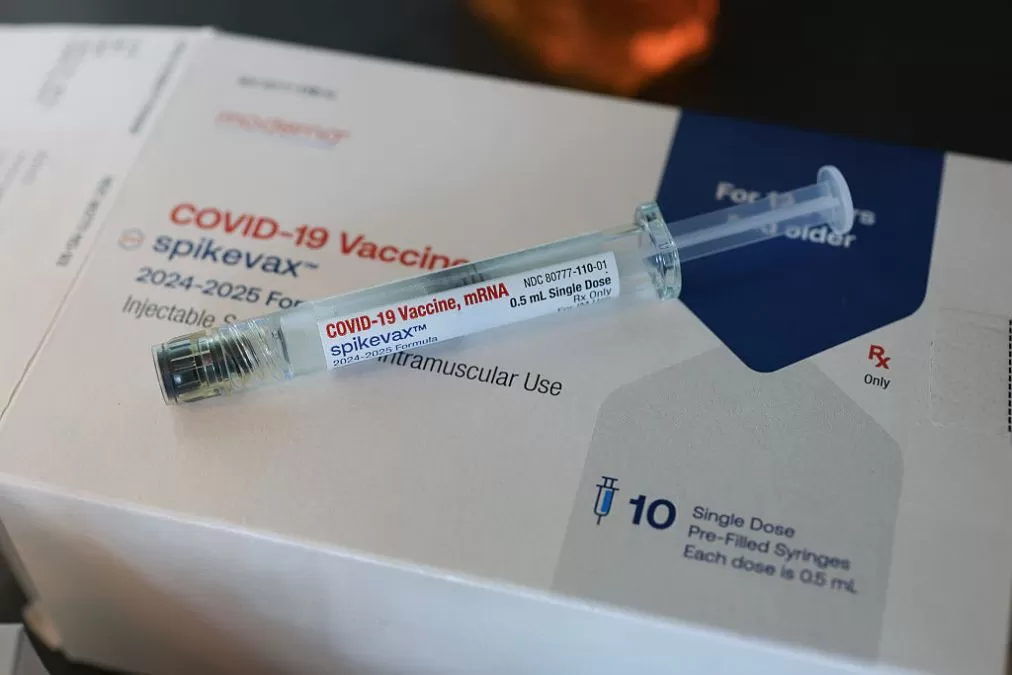Exosomes for Hair Loss: Hope or Hype? Unpacking the Science Behind the Latest Buzz
Share- Nishadil
- September 04, 2025
- 0 Comments
- 4 minutes read
- 42 Views

The Exosome Enigma: Do These Cutting-Edge Treatments Really Combat Hair Loss?
Hair loss affects millions, driving a constant search for new solutions. Exosome treatments have emerged as a high-tech contender, promising regeneration. But what's the real story behind this cutting-edge approach?
Hair loss is a deeply personal and often distressing experience, affecting millions worldwide and driving a relentless quest for effective remedies. Amidst a sea of lotions, potions, and procedures, a new, highly advanced treatment has captured significant attention: exosome therapy. Touted as a cutting-edge regenerative solution, exosomes promise to rejuvenate hair follicles and restore a fuller head of hair.
But in a landscape often prone to overhyped claims, it's crucial to dissect the science and scrutinize the evidence. Are exosomes the future of hair restoration, or simply another costly gamble?
At its core, exosome therapy leverages tiny, extracellular vesicles – essentially microscopic sacs – released by stem cells.
These exosomes act as messengers, carrying a potent cocktail of growth factors, proteins, lipids, and genetic material (RNA) to other cells. They are like miniature communication packets, designed to transmit vital instructions and signals. In the context of hair loss, the theory is that these exosome-delivered signals can awaken dormant hair follicles, promote the growth phase of hair, and improve scalp health, leading to thicker, stronger hair.
The concept is undeniably compelling, marrying sophisticated biology with the desperate need for a hair loss breakthrough.
Many clinics offering exosome treatments suggest that by applying these vesicles directly to the scalp, they can kickstart a regenerative process, coaxing existing follicles back to life and potentially even encouraging new growth. This sounds like a dream come true for those grappling with thinning hair and receding hairlines.
However, the enthusiasm surrounding exosome treatments is currently far ahead of the robust scientific evidence.
While preliminary studies and anecdotal reports show some promise, large-scale, randomized, placebo-controlled clinical trials – the gold standard for proving efficacy and safety – are largely absent. Most of the available data comes from small studies, often conducted by clinics with a vested interest in promoting the treatment, making it difficult to draw definitive conclusions about long-term results or widespread applicability.
Crucially, the U.S.
Food and Drug Administration (FDA) has not approved exosomes specifically for hair loss treatment. The FDA views these products as drugs, subject to rigorous testing and approval processes before they can be legally marketed for medical conditions. Many clinics navigate this by marketing exosome products as 'cosmetic' or 'regenerative' without explicitly claiming to treat hair loss, or by using unapproved, unregulated products.
This lack of oversight means patients are entering a largely uncharted territory, with varying product quality and no guarantee of safety or effectiveness.
Dermatologists and hair restoration specialists generally advise extreme caution. Experts like Dr. Maryam Moinfar and Dr. Nicole Rogers emphasize that while the science is intriguing, we simply don't have enough data to recommend exosomes as a proven hair loss solution.
They highlight the significant financial investment – often thousands of dollars per session – with no assurance of results. Patients are essentially paying for an experimental treatment without the safeguards and proven track record of FDA-approved alternatives like minoxidil or finasteride, which, though not perfect, have undergone extensive clinical validation.
Beyond the efficacy concerns, there are also potential risks.
Although generally considered safe, any procedure involving injections carries risks of infection, pain, or an allergic reaction. More significantly, the long-term effects of introducing concentrated exosome solutions into the scalp are not yet fully understood. Without regulatory oversight, the purity and consistency of exosome products can vary wildly, posing further unknowns.
In conclusion, exosome therapy for hair loss represents a fascinating frontier in regenerative medicine, brimming with potential.
The idea of harnessing the body's own communication systems to revitalize hair follicles is a truly exciting prospect. However, for now, it remains an unproven treatment. Patients considering exosomes should proceed with a healthy dose of skepticism, understanding that they are investing in a therapy with limited scientific backing and no FDA approval for this specific use.
The scientific community eagerly awaits more rigorous research to determine if exosomes will ultimately fulfill their promise and provide a truly effective solution for the millions struggling with hair loss.
.Disclaimer: This article was generated in part using artificial intelligence and may contain errors or omissions. The content is provided for informational purposes only and does not constitute professional advice. We makes no representations or warranties regarding its accuracy, completeness, or reliability. Readers are advised to verify the information independently before relying on







